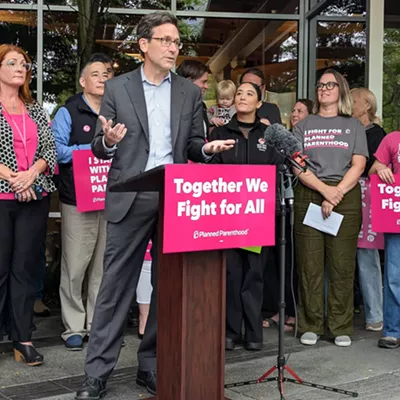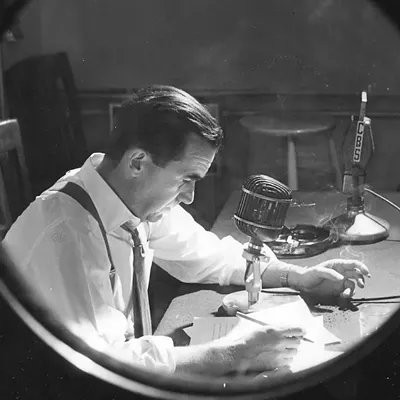As I write, U.S. Marines continue their sweep through Fallujah. Thirty-eight Americans have already been killed in the campaign, with 275 wounded. The Bush administration hopes to defeat the insurgents before the Iraqi elections in January. Observers like U.N. Secretary General Kofi Annan fear the attack will only strengthen the insurgency and further inflame anti-American opinion.
Here at home, the government walks both sides of the fine line between dispensing justice and abusing civil liberties. Sami Omar al-Hussayen, a Saudi Arabian University of Idaho graduate student, spent more than a year in jail awaiting trial for the "crime" of building Web sites. Federal prosecutors claimed that his work helped terrorists. Jurors voted unanimously for acquittal. Some even ridiculed the government's case.
Ryan Anderson wasn't so lucky. Anderson is a Washington Army National Guardsmen. Soon after being activated and assigned to Fort Lewis (on his way to Iraq), he was arrested and charged with treason, for which an Army court martial gave him a life sentence. Anderson's "crimes" appear (to me anyway) to be those of a confused, attention-seeking young man. Though he claimed conversion to Islam, many Muslims he approached suspected he was a government agent. His unsolicited offers of military information in Internet chat rooms drew more attention from a member of an anti-terrorism vigilante group who tipped off the FBI.
We hear similar stories all across the country. The Supreme Court had to actually tell the U.S. government something many of us thought was obvious and had been settled by centuries of Anglo-American law and tradition: Democratic governments can't just lock people up and throw away the key. The Court said so-called "enemy combatants" must be given some kind of due process, under either domestic or international law.
I am not a Muslim and I don't look like an Arab, but I could see and feel the mood change after 9/11; the airport white-shirts, the militaristic buzz at border crossings, the wave of new guards, gates and locks at government buildings. Gradually, the initial hysteria turned into paychecks and positions of social and political importance that depend on the perpetuation of fear.
Then came the presidential campaign. A year ago, President Bush's political guru Karl Rove promised to run his patron as the "Warrior President." You know the rest. I thought the orgy of fear mongering and military rhetoric would never end. There was even a grotesque appearance by Osama Bin Laden. Appearing in a well-produced video, speaking directly to U.S. voters, he threatened revenge if America continued its Middle East policies.
Karl Rove's bet on the politics of fear paid off. Today, the Iraq war and the hardest edge of the domestic war on terror are the indisputable "will of the people." Journalist and cynic H.L. Mencken once said "Democracy is the theory that the … people know what they want — and deserve to get it good and hard."
I fear the news will get much worse before it gets better.
Robert Stokes is a retired University of Washington professor who lives in Spokane.














